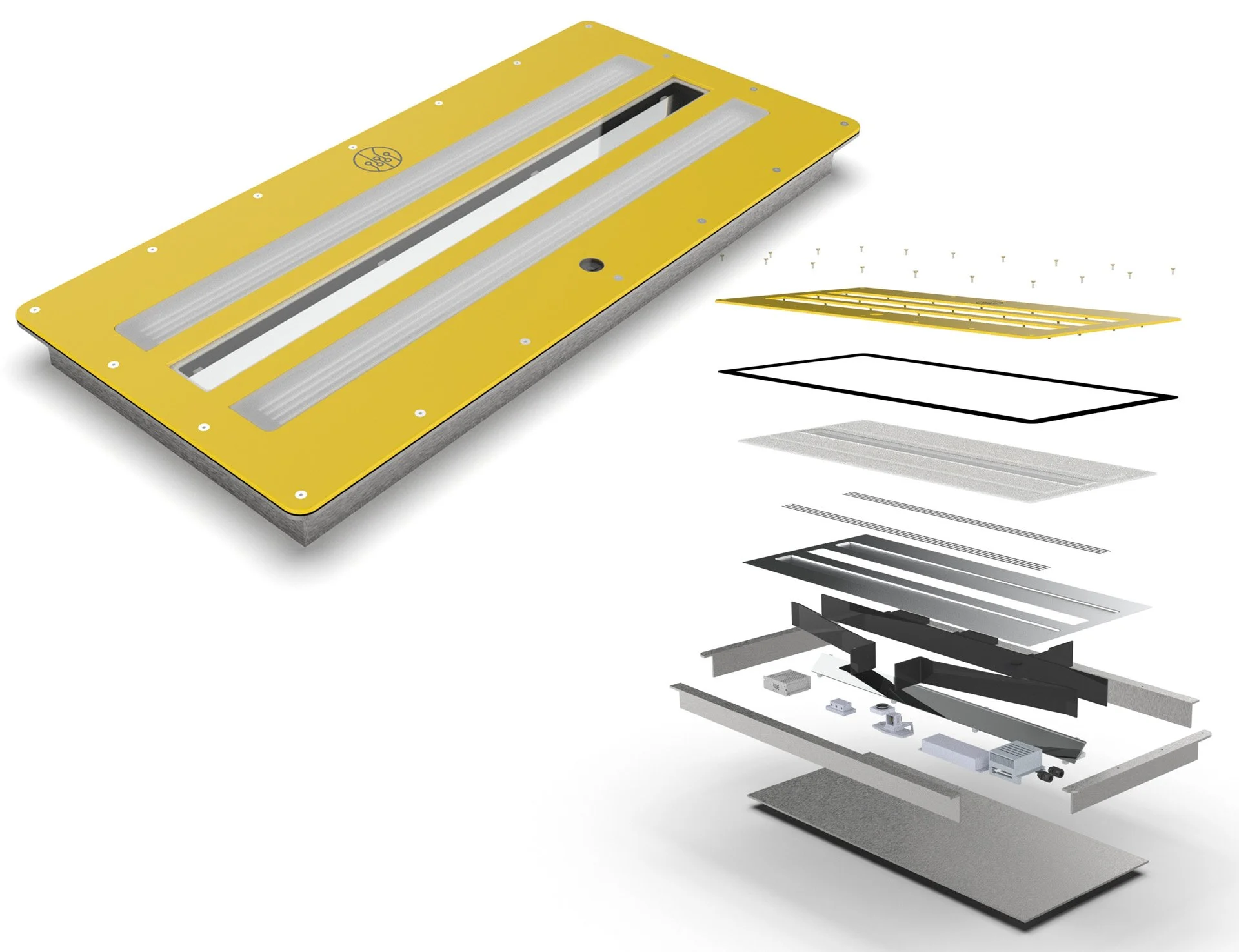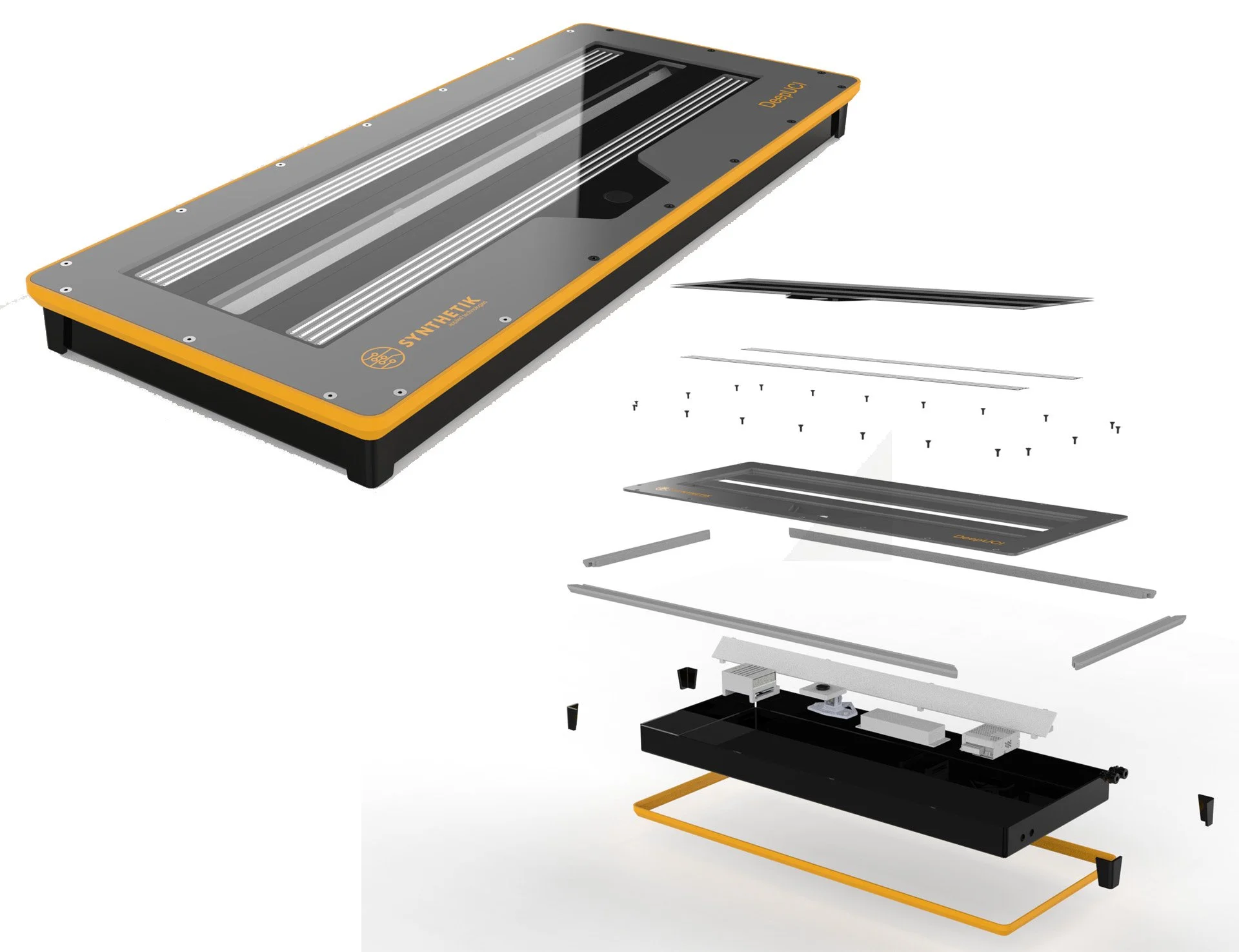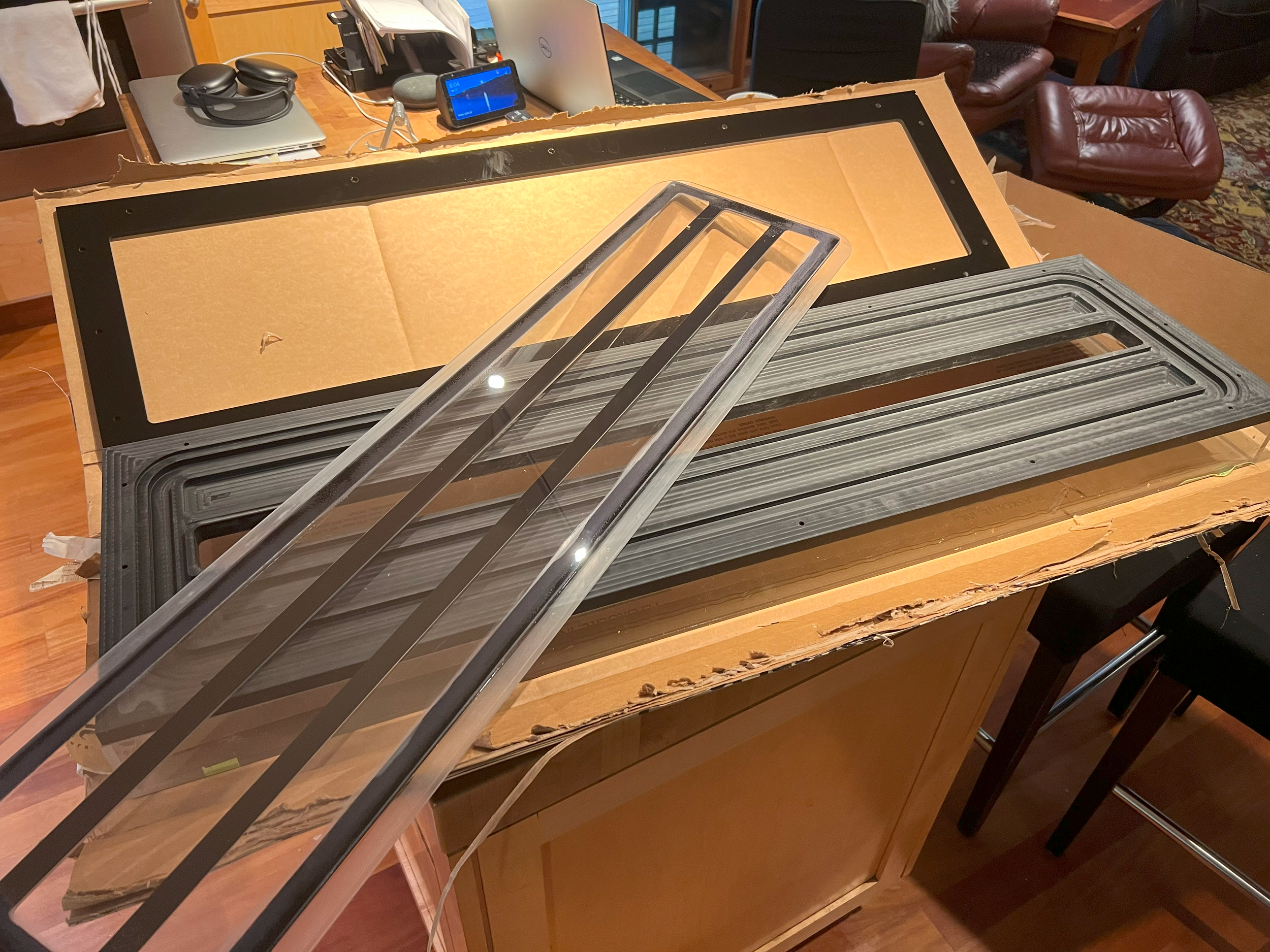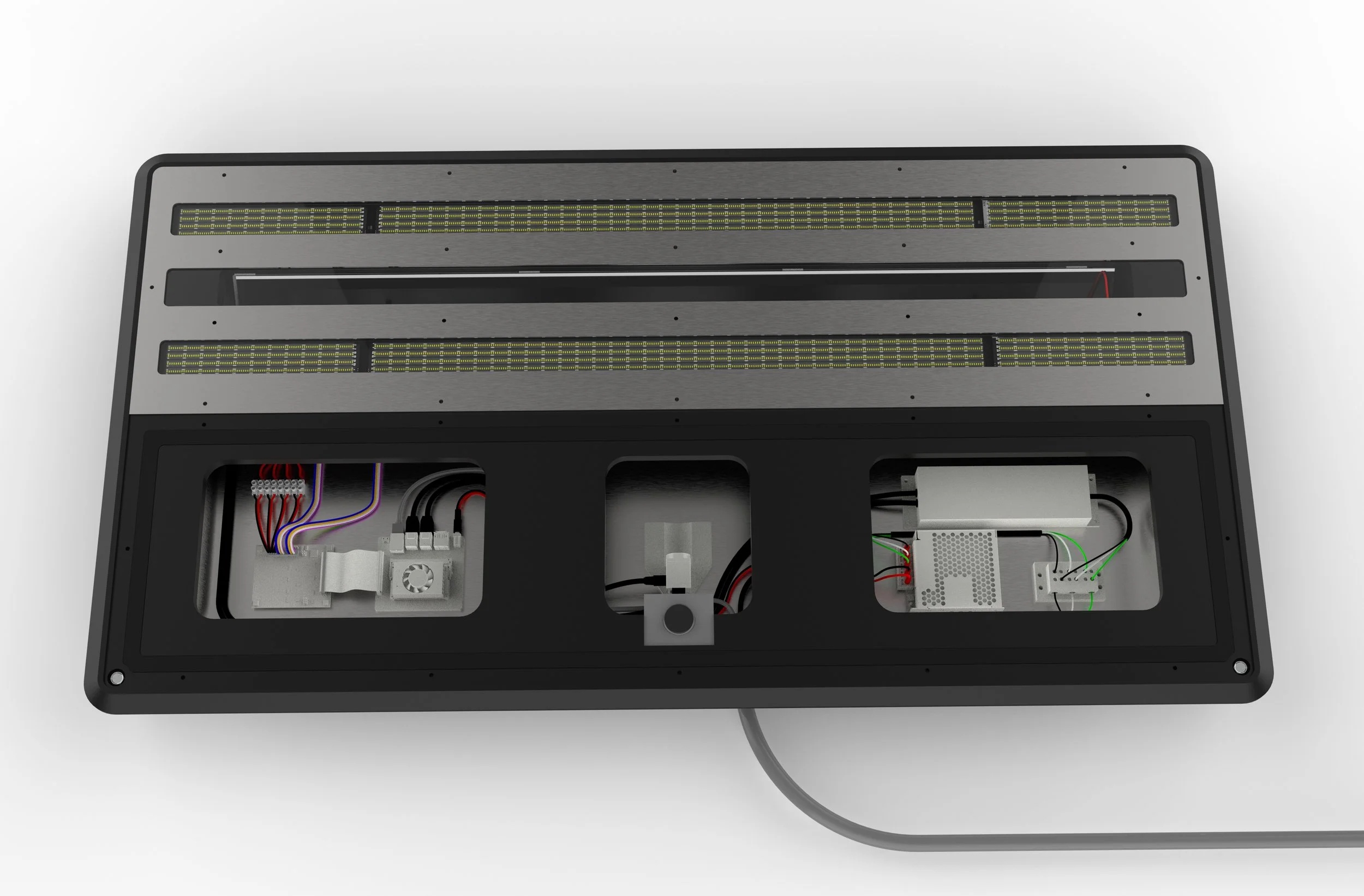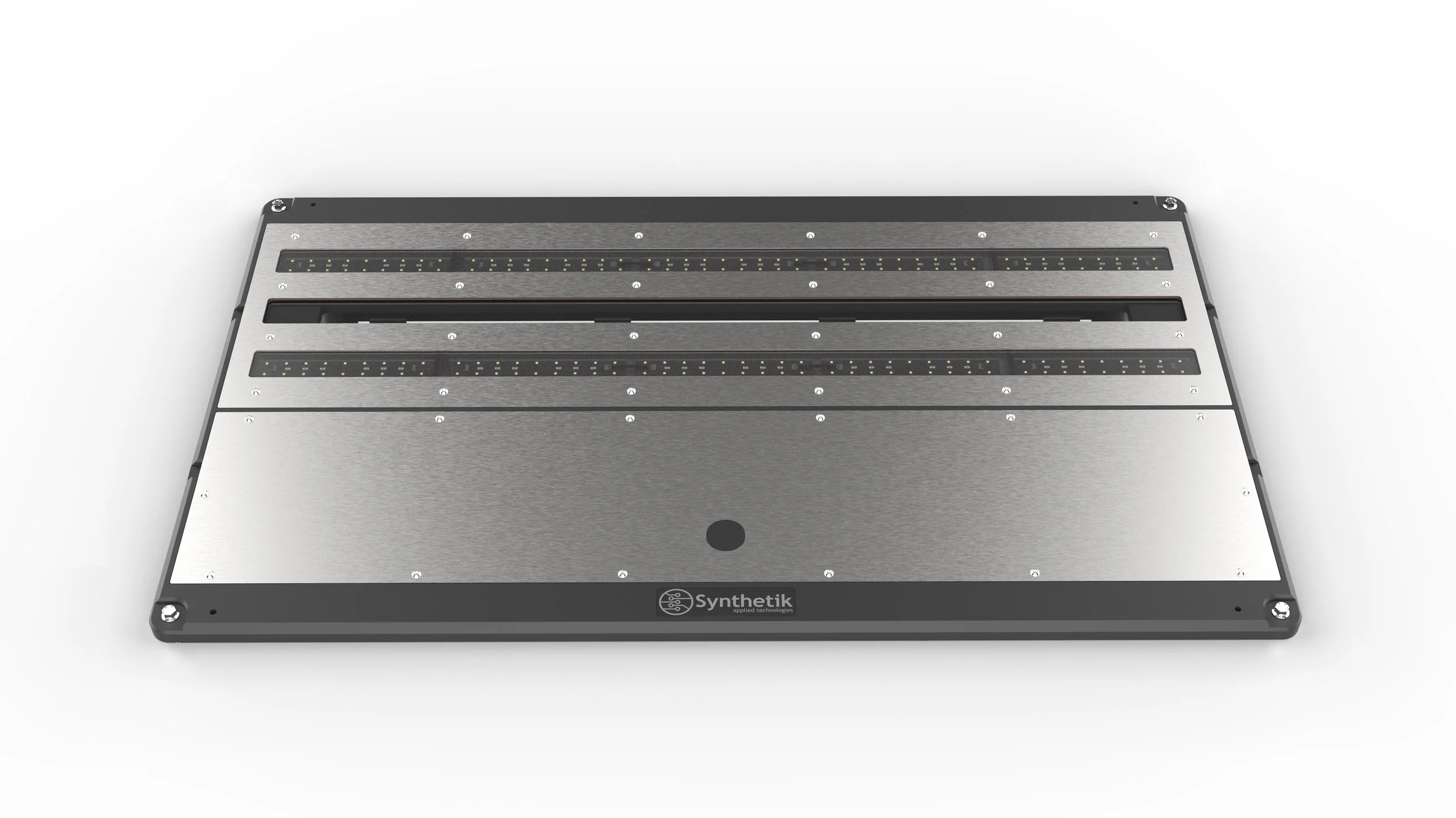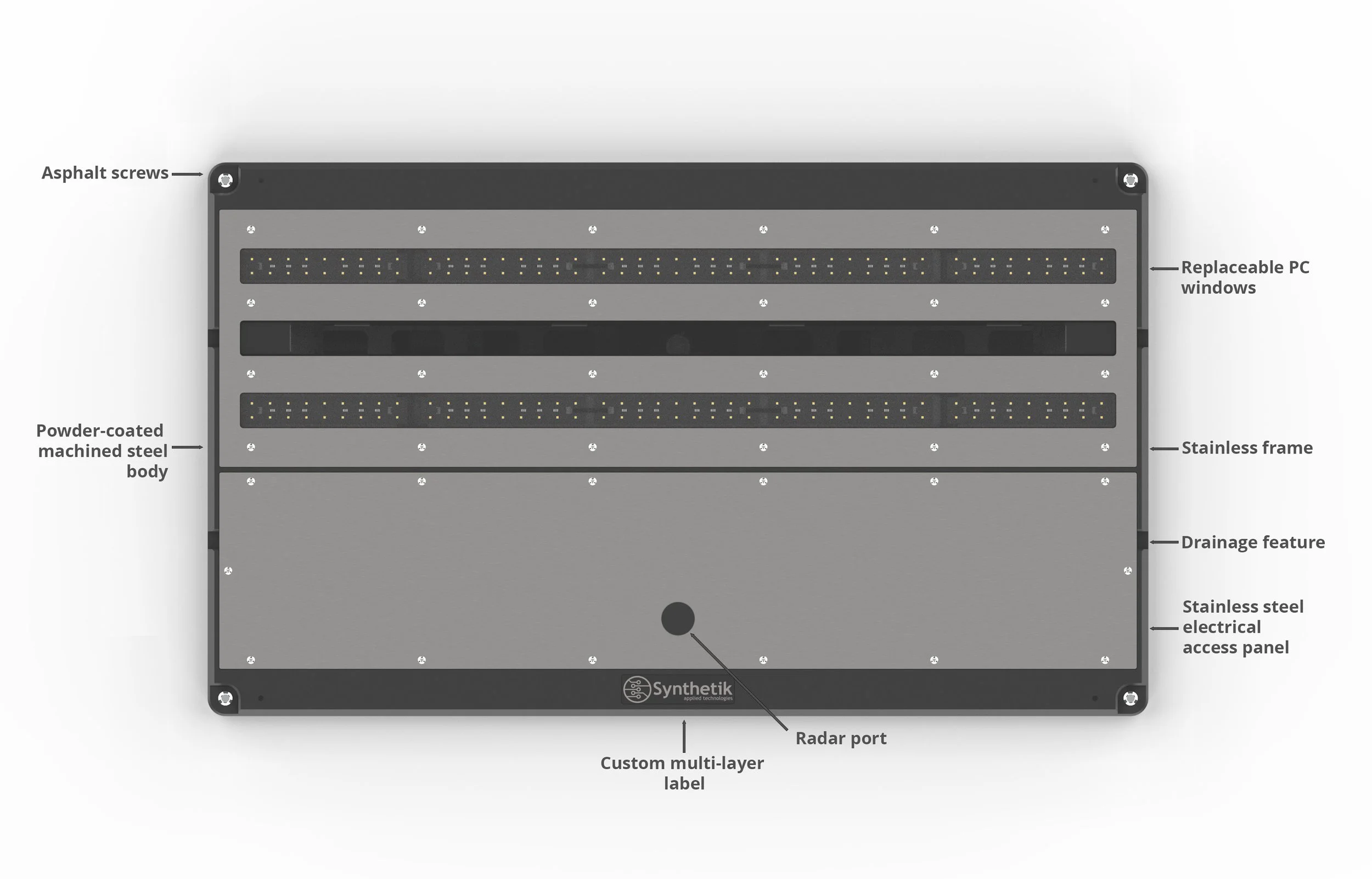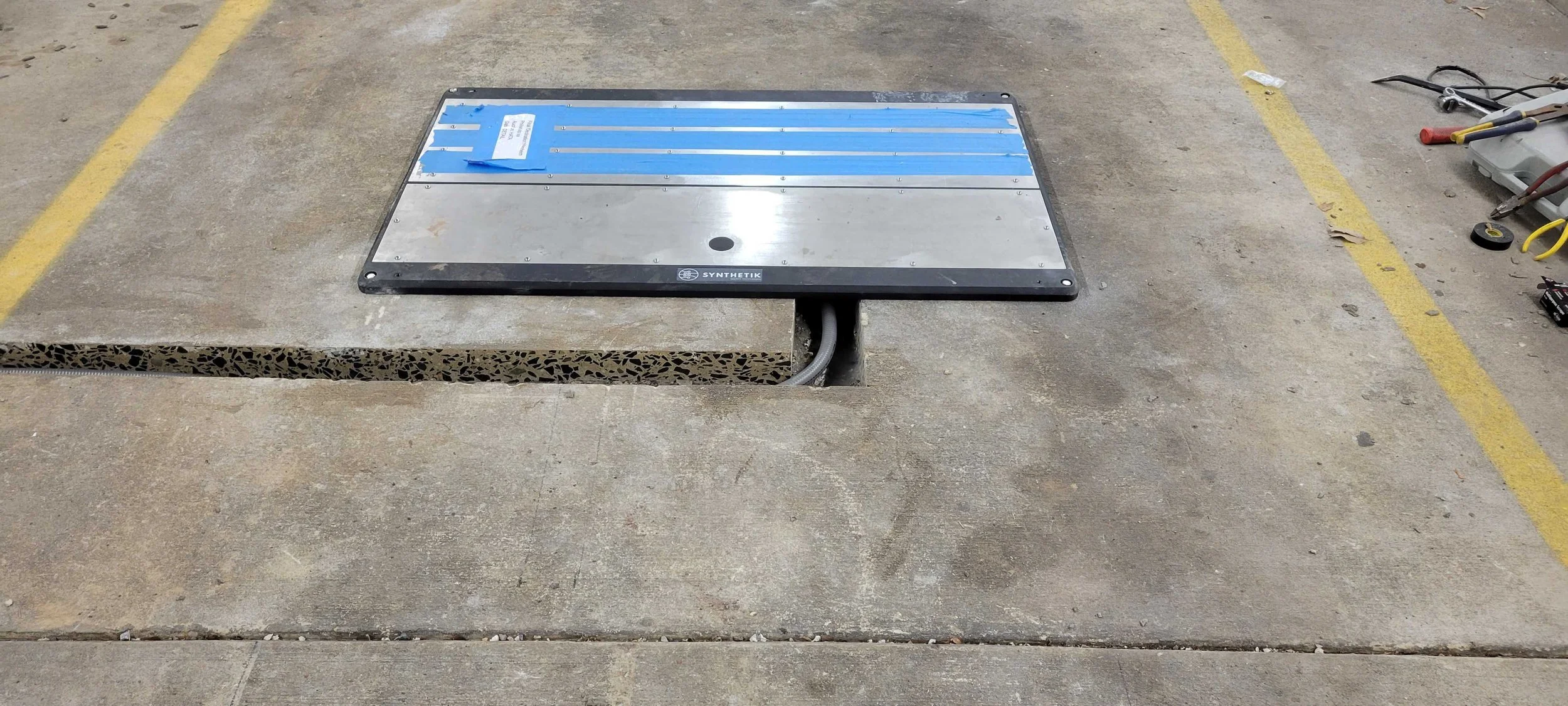UCI
Simplify, Seal and Organize
The UCI product is used to streamline the visual inspection of a vehicle’s undercarriage. It is used in the automotive resale industry and border/checkpoint security.
Vehicles are “line scanned” as there are driven over the device and the resulting panoramic image is automatically “assembled” for review by human or AI inspectors. A user-accessible cloud-based system organizes and associates the resulting scans with the vehicle’s VIN.
In security situations, AI is used to identify foreign objects or compare in/out scans to detect potential contraband or threats.
The initial design of the product was visually chaotic, prone to leakage, and poorly organized internally.
Existing Design
Four approaches were explored to solve the major problems with the current design.
-Improve and reduce cost of assembly and improve visual appeal and overall product impression.
-Improve sealing by introducing gaskets (with screws on the outside of the gaskets) and drainage pathways
-Organize the electrical components to simplify installation/maintenance and to create a more professional product.
Simplify: Sketches of potential ID directions:
1. End Cap 2. Frame 3.Band 4.Sand Cast
Simplify: CAD “Sketches” adding mech. detail and CMF
1-End Cap
2-Frame
3-Band
4-Sand Cast
Seal: Mechanical prototypes to test sealing strategies
One of the major challenges of this project was sealing the unit to prevent water intrusion and build-up of condensation on windows caused by temperature and humidity variations.
Several key improvements were added to the original design.
Screws on the “outside” of gaskets
Controlled compression of gaskets
Drainage of recessed gasket areas
Several machined and laser cut physical prototypes were created to prove gasket designs and window assembly methods.
The prototypes were subjected to sprayed water as well as submersion. Ultimately, we were able to achieve a level of sealing equivalent to an IP67 rating.
Typical scan of an undercarriage
Organize: Improve assembly and maintenance
Final Design and Installation
The UCI is used in an extremely harsh environment and has to resist water intrusion, abrasion, and chemical exposure. The installation process is relatively simple but requires cutting a relief hole in the existing pavement for the device and its power and data connections. The UCI is built to be suspended above the hole in the pavement and secured with 4 asphalt screws. Regular maintenance of cleaning the aperture window and radar port is required for the device to function properly.




